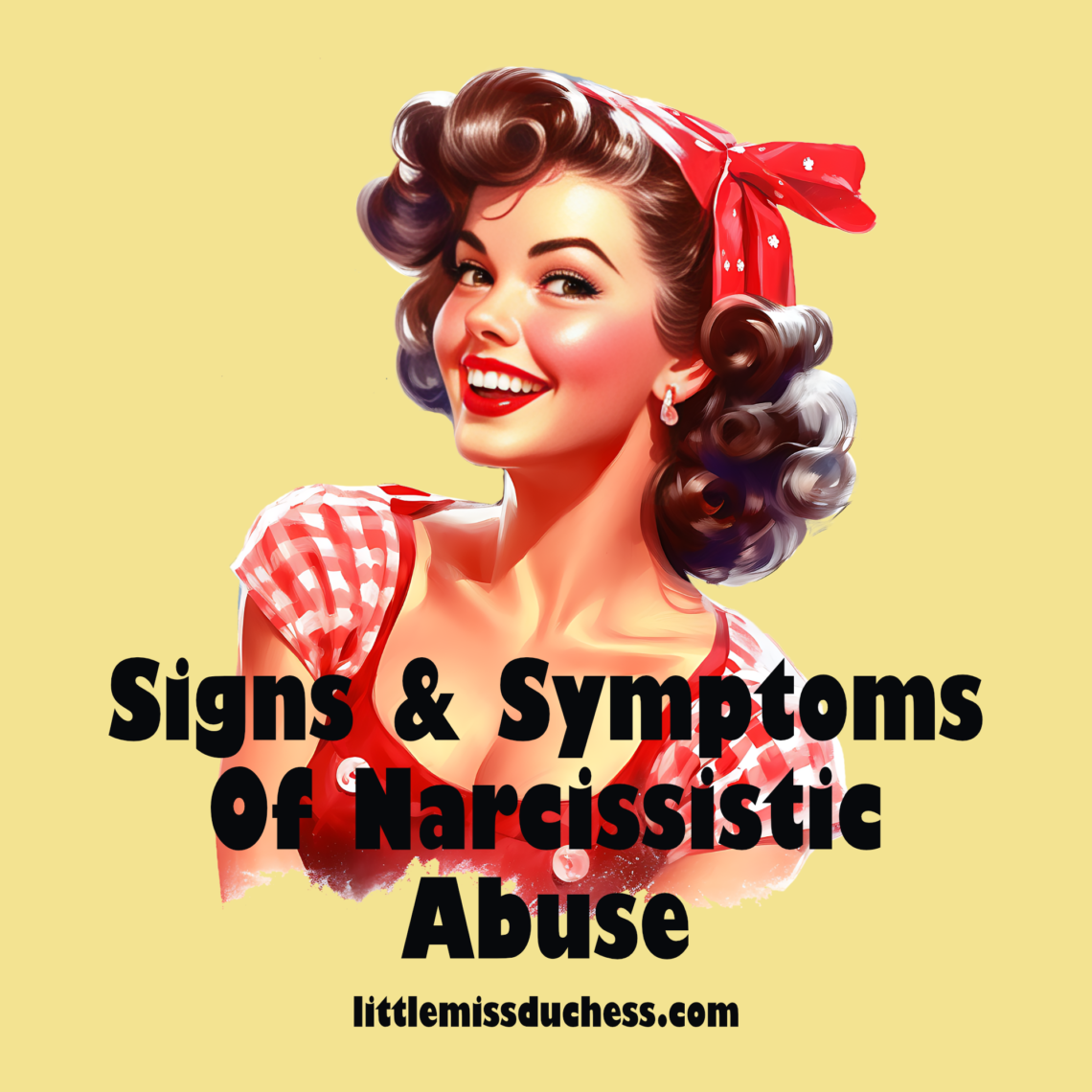
The Top 6 Signs of Narcissistic Abuse
Table of Contents
What are the signs and symptoms of Narcissistic Abuse?
Signs of narcissistic abuse show us the psychological and emotional manipulation that can leave victims feeling confused, isolated, and helpless. It is a type of abuse that occurs when someone with a narcissistic personality disorder (NPD) exploits the vulnerabilities of another person in order to gain control over them. Victims often experience a range of physical, mental, and emotional symptoms such as depression, anxiety, low self-esteem, codependency, and PTSD. In this article we will discuss what narcissistic abuse is and its impact on victims.
What are the Common Signs of Narcissistic Abuse?
Narcissistic abuse is a form of emotional and psychological abuse that can leave victims feeling confused, hurt and powerless. It can be difficult to recognize the signs of narcissistic abuse because it often takes place in subtle ways. Victims may not even realize they are being abused until the damage has already been done.
Some of the most common signs of narcissistic abuse include PTSD symptoms, Complex PTSD (if they have additional traumas like being mistreated by narcissistic parents), or even “Narcissistic Victim Syndrome” may appear in victims of ongoing abuse. They might go through episodes of depression, anxiety, hypervigilance, a pervading sense of humiliation, emotional flashbacks to the times they were being abused, and overwhelming feelings of worthlessness and helplessness.
Furthermore there are some extremely common signs of narcissistic abuse that can be recognized for victims of this abuse, including but not limited to:
- You begin to experience ongoing suspicion. You realise that everyone is a threat now that you have witnessed the wicked activities of someone you had previously trusted, and you are concerned about what other people are thinking. Your usual prudence becomes heightened vigilance. Because the narcissistic abuser has tried so hard to gaslight you into believing that your experiences are untrue, you have difficulties trusting anyone, even yourself.
- You’re terrified of being successful at what you love. Because narcissists are envious of their victims’ success, many of these predators punish their victims. Their victims learn to associate their interests, talents, and areas of success with cruel and ruthless punishment as a result. The victims are conditioned to fear success through this conditioning out of concern for reprisals and punishment.
- You weaken and obliterate yourself. Victims relive the abuse and hear the abuser frequently in their minds, which magnifies their negative self-talk and predisposition for self-destruction. Narcissists that are malicious manipulate and teach their victims to hurt themselves.
- You defend your abuser, even going so far as to lie to yourself. In attempt to alleviate the cognitive dissonance that results from being mistreated by someone who professes to love you, we often tell ourselves that the abuser is not all that bad or that we must have caused the attack.
- You cut yourself off. While many abusers isolate their victims, many abused individuals also isolate themselves due to their own sense of shame. They decide to isolate oneself from other people in order to avoid criticism and retaliation from their abuser because they are worried that no one would understand or believe them if they asked for help.
- In order to appease the abuser, you set aside your fundamental wants and desires and risk your emotional and even physical safety.

How to Recognize & Handle Abusive Behavior in a Relationship?
As you have read above the signs of narcissistic abuse in relationships can be difficult to identify and even more difficult to handle. It can take many forms, from emotional manipulation tactics, gaslighting examples in relationships, and psychological manipulation techniques.
It is important to recognize the signs of abuse so you can take action before it becomes too late.
Gaslighting is a form of psychological manipulation that can cause serious emotional damage to its victims. It occurs when someone tries to make another person doubt their own reality and memory, often by using lies, distortion, and other manipulative tactics.
Unfortunately, gaslighting is becoming more and more common in our society as people become more adept at using these tactics to manipulate others, but do note that it is one of the major signs of narcissistic abuse (and is utilised a lot).
What Role Does Codependency Play in Narcissistic Abuse?
Codependency is another extremely common one of the signs of narcissistic abuse. It has been used to describe the complex relationship patterns that can form between two people, often leading to narcissistic abuse. The codependent person is usually an enabler, allowing the narcissist to get away with their bad behavior and enabling them to continue their abusive cycle.
Codependency can be difficult to recognize, as it can manifest in many different ways. To help identify whether you are in a codependent relationship or not, it may be helpful to take a codependency quiz or look at the definition of enabler personality traits in psychology.

Codependency is a relationship dynamic in which one person is excessively dependent on the other for their emotional needs. It’s often found in relationships with a narcissistic abuser, where the codependent person allows themselves to be manipulated and mistreated by their partner.
Codependency can have a profound effect on the codependent, leading them to feel powerless and trapped in an unhealthy relationship. It can also lead to feelings of guilt, shame, and worthlessness. In order for the codependent to break free from this cycle of abuse, they must first understand how codependency works and how it affects them.
If left untreated, codependency can lead to more serious issues such as addiction or self-harm. By understanding the root causes and taking action to heal yourself, you can break free from the cycle of codependency and reclaim your life.
How to Help Yourself Heal from Narcissistic Abuse & Create Healthy Relationships?
Narcissistic abuse can be a difficult thing to overcome, but it’s not impossible. With the right mindset and tools, you can create healthy relationships and heal from the hurtful effects of narcissistic abuse. By understanding how to recognize narcissistic behavior and developing strong boundaries, you can protect yourself from further harm while learning how to build healthier relationships with others.
Despite any attempts by your abuser to mislead you, the first step is validating and admitting the reality of your situation.
Keep a journal about your experiences if you can to begin realising the abuse’s facts.
Tell a trustworthy mental health professional what you know about your friends or relatives.
Start utilising strategies like mindfulness meditation to “heal” your body as they both have an influence on the same brain areas that trauma usually affects. You also may be interested, in looking at “reparenting your inner child”.
Seek help if you notice any unsettling or alarming symptoms. Make an appointment with a trauma-aware counsellor who can help you manage the trauma’s effects. Make a safety strategy.
While ending an abusive relationship is not always easy, it is always worthwhile.

